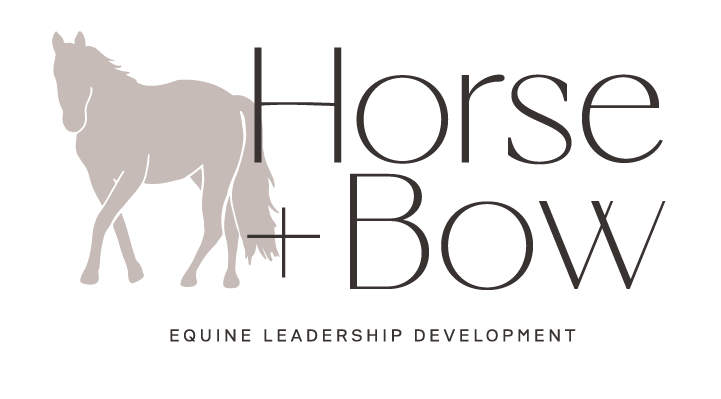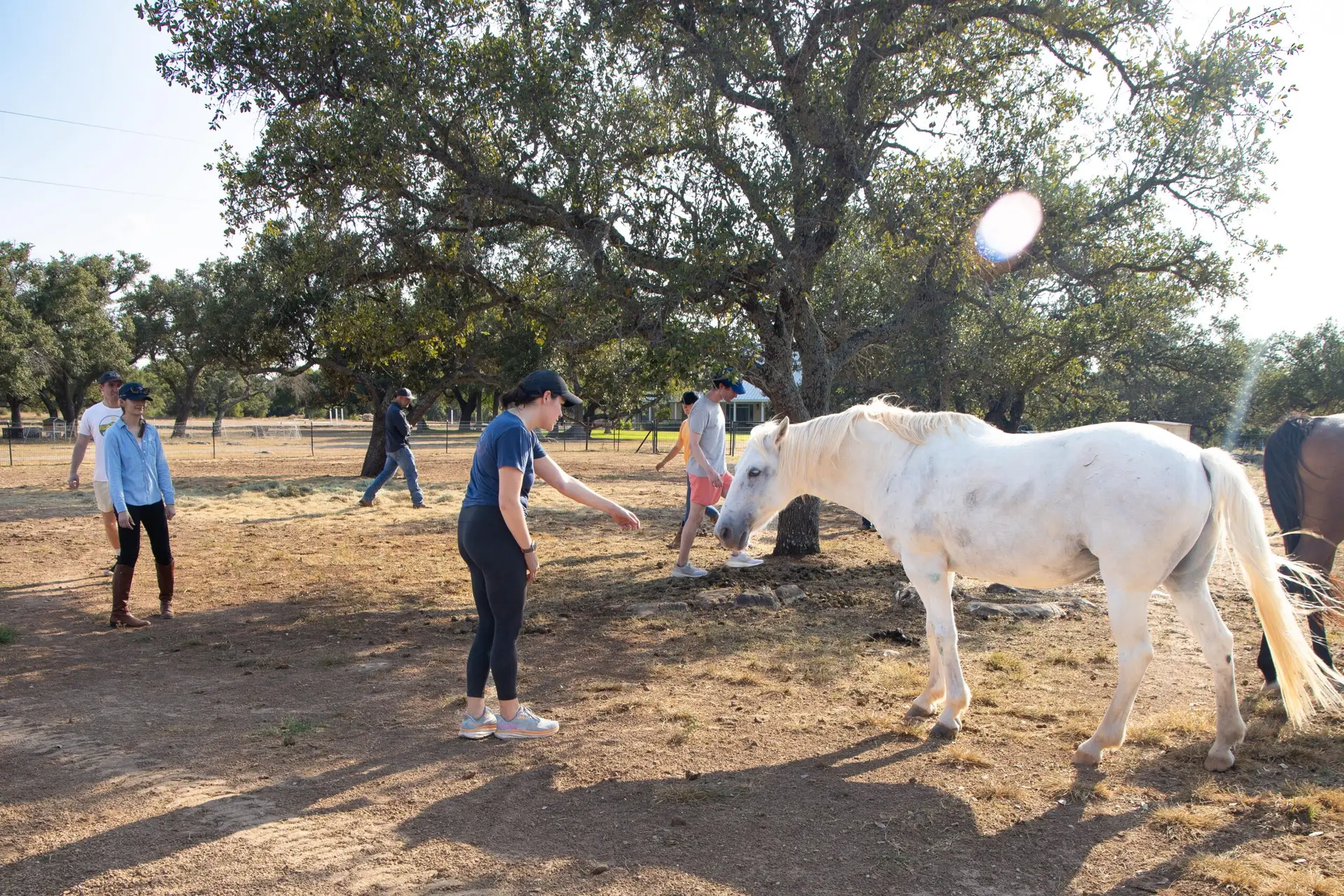What Are Interpersonal Skills?
Interpersonal skills are the abilities we use every day to communicate, collaborate, and build healthy relationships. These include verbal and nonverbal communication, emotional intelligence, empathy, and leadership. At Horse + Bow in Austin, Texas, our equine-assisted programs help children and adults strengthen these essential life and workplace skills through powerful interactions with horses.
How Horses Improve Communication Skills
Most of us fall into familiar communication patterns with family, friends, and colleagues. Sometimes we don’t even notice that our go-to style isn’t getting the results we want. Equine-assisted learning helps interrupt those patterns. When you interact with a 1,200-pound animal that responds honestly and without judgment, it becomes impossible to ignore when something isn’t working.
Emotional Intelligence Feedback from Horses
Horses respond to human emotions, energy, and body language in real time. They don’t care about your job title or how you say you’re feeling—they react to what’s truly going on inside. That’s why they’re often described as mirrors. In our workshops, we help participants recognize these responses as valuable feedback and use them to build self-awareness and improve their emotional intelligence.
Why Horses Are Ideal for Leadership Development
When faced with a task involving a horse—such as getting the horse to move or follow—you’ll likely use the same strategies you use in everyday interactions. Horses reveal our default behaviors, especially when things don’t go as planned. If a horse doesn’t respond the way you want, you must adapt. This encourages creativity, patience, and more conscious communication.
Key Interpersonal Skills Developed with Horses:
- Clear, assertive communication
- Emotional regulation and self-awareness
- Empathy and active listening
- Creative problem solving
- Collaborative leadership
Translating Horse Interaction to Real Life
After each exercise, we guide a discussion to help participants connect the horse’s behavior to real-life relationships. Questions we explore include:
- When have I experienced a similar challenge with another person?
- Do I approach tasks the same way at home or work?
- What old habits or assumptions might be holding me back?
- What might I try next time I encounter a similar situation?
Discovering Hidden Beliefs and Behavior Patterns
Sometimes our energy is too intense because we feel the need to be loud to be heard. Other times, we shrink back due to self-doubt or fear of rejection. Working with horses makes these patterns visible. Participants learn to identify limiting beliefs and experiment with new ways of being that align with their values and goals.
From Insight to Action: Practicing New Interpersonal Skills
Growth starts with awareness, but true change requires action. After gaining insight through the interaction, we ask participants to identify what they want to do differently going forward. Small changes—like adjusting tone, slowing down, or clarifying a request—can have a big impact on relationships.
Gratitude and Commitment After Equine Learning
Each session closes with reflection. Participants often express gratitude—for the horse’s honest feedback, for their peers’ vulnerability, and for their own willingness to grow. Then comes the commitment: What specific change will I carry forward into my daily life? We follow up with participants in the weeks and months that follow to celebrate continued progress.
Learn Interpersonal Skills through Horses in Austin, TX
At Horse + Bow, we offer equine-assisted leadership development and team building programs, as well as beginner horse riding lessons that incorporate personal growth. If you’re interested in developing your communication skills, emotional intelligence, or leadership ability in a powerful and memorable way, we’d love to talk.
Contact us today to learn more about how horses can help you or your team grow.
Frequently Asked Questions
Equine Assisted Learning is an experiential learning approach where participants engage in activities with horses to develop emotional intelligence, communication, leadership, and teamwork skills. No riding is required.
Not at all. Most of our participants have little or no prior horse experience. All activities are done on the ground and guided by certified facilitators.
Horse + Bow’s programs focus on personal and professional development, not therapy. However, many participants find the experience to be deeply therapeutic and transformative.
Yes. We specialize in customized leadership development and team building programs for organizations. These sessions are great for improving communication, trust, and collaboration within teams.
Wear closed-toe shoes and comfortable, weather-appropriate clothing. We’ll provide everything else you need for a safe and meaningful experience with the horses.
Sessions range from 90-minute introductory experiences to half-day and full-day workshops. We also offer multi-day private retreats and custom packages.
We’re located in Marble Falls, just outside Austin, TX, in the beautiful Texas Hill Country. Exact directions are provided upon booking.

